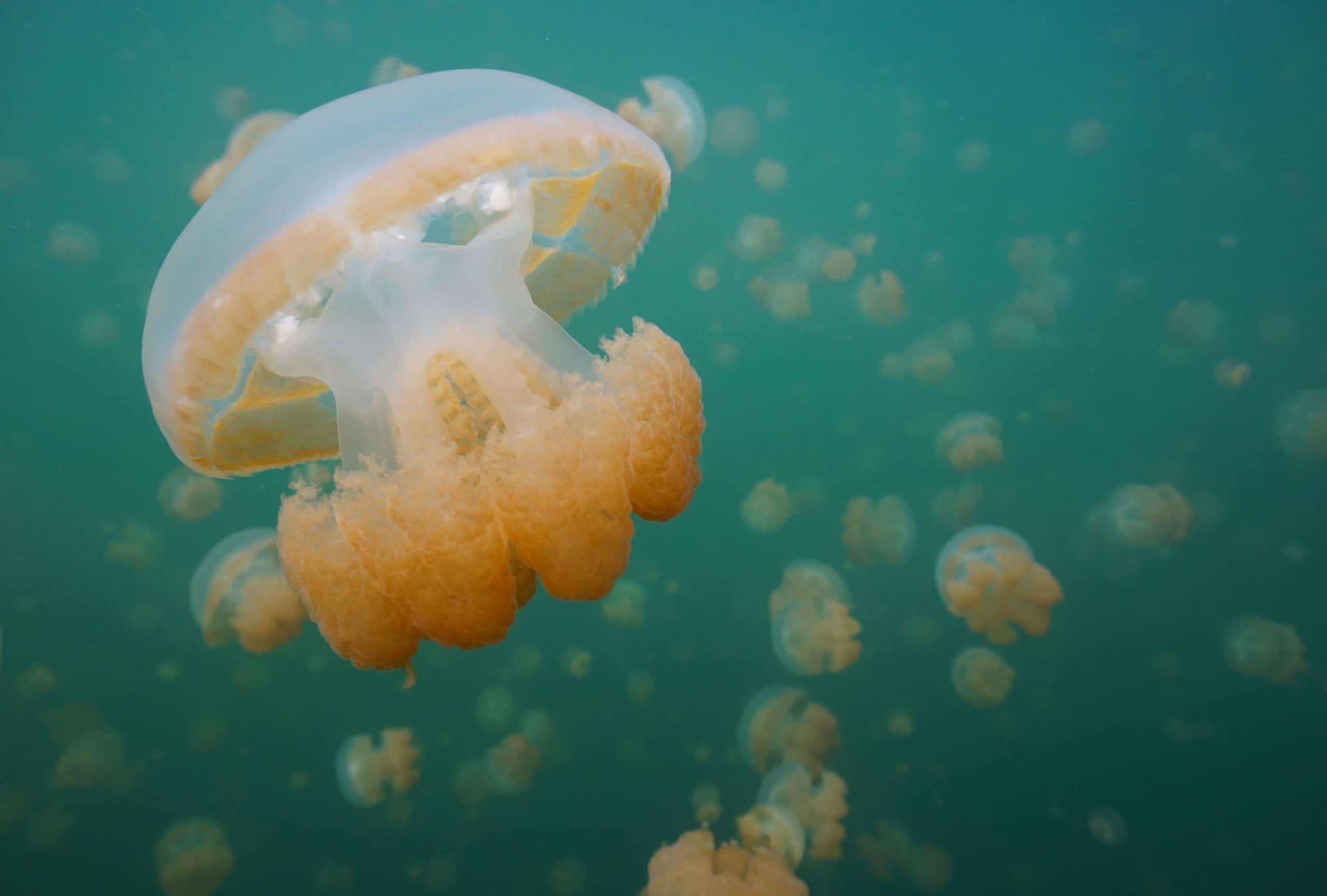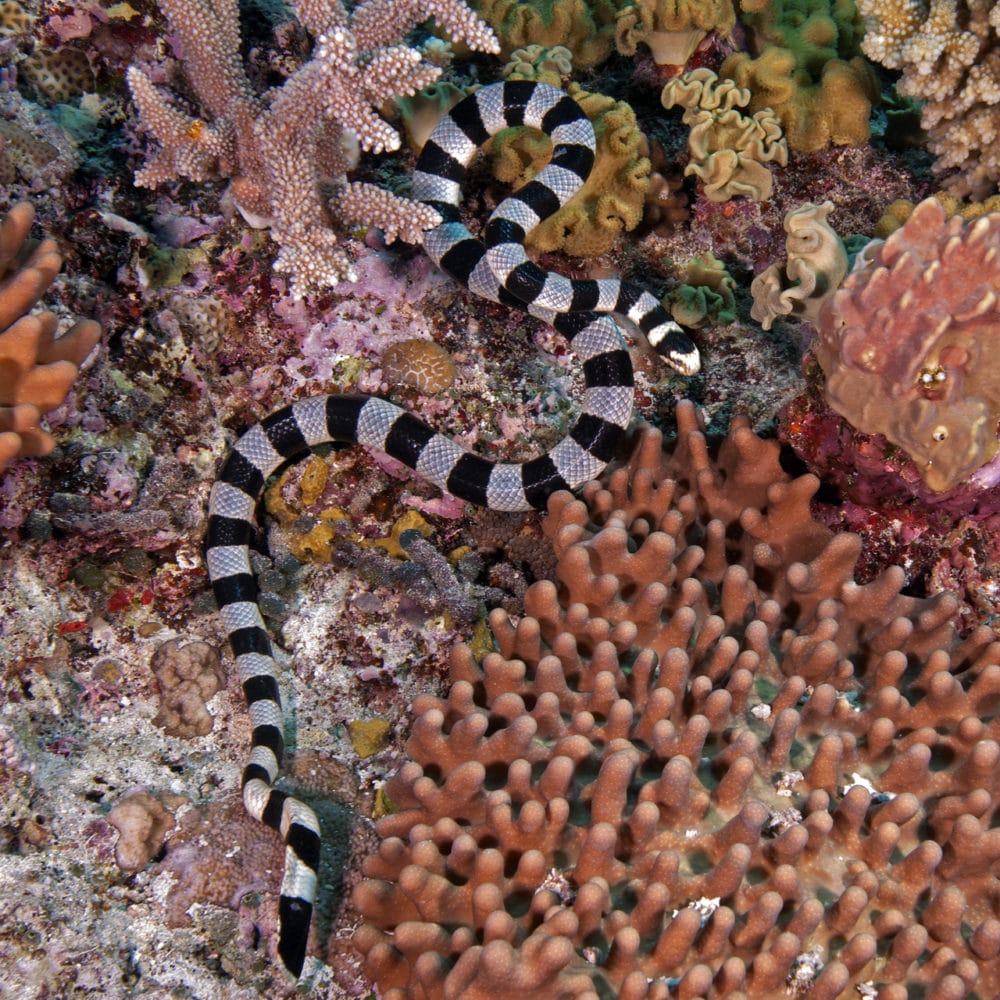Fact Friday

These are no ordinary jellyfish. The golden jellyfish in Palau’s Jellyfish Lake move together in a daily migration that follows the sun from one side of this marine lake to the other. Just like coral, these jellyfish have symbiotic algae, called zooxanthellae, living in their tissues. The zooxanthellae photosynthesize and then share nutrients with the jellyfish, which it needs to survive. Once the sun goes down, the jellyfish migrate back to the other side of the lake where they begin the cycle all over again the next morning.
Photo Credit: ©ILCP/Keith Ellenbogen

February 28, 2025
Banded Sea Krait
Do you know that the banded sea krait contains a neurotoxin in its venom that’s one of the most lethal in the world? Sea snakes spend most of their time in the water. Sea kraits are not true sea snakes because they spend a lot of time on land digesting food and nesting. Sea kraits differ from their cousins on land because they have a paddle-like tail used for swimming. They hunt eels and other small fish that live in the coral reef, easily fitting into the reef’s crevices. They use their deadly neurotoxin to paralyze their victims before swallowing them whole.
Photo Credit: Ken Marks




